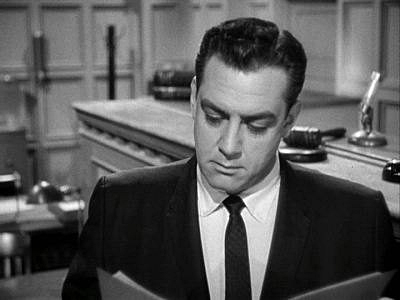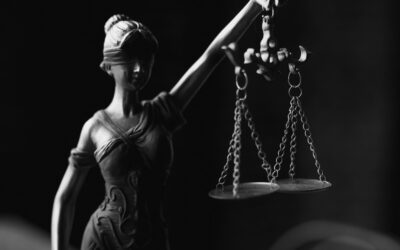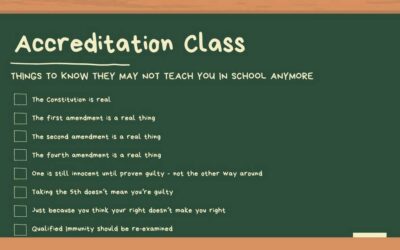Citizen-initiated proposals aimed at increasing the minimum wage and expanding paid sick leave
In a significant ruling, the Michigan Supreme Court has reinstated the original minimum wage and paid sick leave laws that were initially gutted by the legislature in 2018. This decision reverses the amendments made by the legislature, which had adopted and then quickly weakened the voter-initiated proposals, effectively bypassing the intent of the voters.
Background
In 2018, two citizen-initiated proposals aimed at increasing the minimum wage and expanding paid sick leave were presented.
The Michigan Legislature adopted these initiatives to prevent them from going to a public vote, then promptly amended them to make them more business-friendly. This “adopt and amend” strategy reduced the scope and impact of the original proposals.
For example, the minimum wage was set to increase more gradually, and the paid sick leave law was adjusted to exempt more businesses from providing benefits.
The Court’s Ruling
The Michigan Court of Claims, with Judge Douglas Shapiro presiding, ruled that this legislative maneuver violated the state constitution. Shapiro’s opinion emphasized that once the legislature adopts an initiative, it cannot amend it within the same session.
This decision reinstates the original 2018 proposals, which include raising the minimum wage to $12 per hour and extending paid sick leave benefits to many more employees than the amended laws allowed.
The court found that the legislature’s actions undermined the will of the people, who had supported the more generous terms of the original initiatives. The ruling also highlighted the constitutional principle that initiatives should be protected from legislative tampering once they are adopted.
Implications for Workers and Employers
The restoration of these laws is a major victory for worker rights groups and unions, who argue that the higher minimum wage and expanded sick leave are essential for providing fair compensation and benefits to workers.
For instance, the reinstated minimum wage law also includes provisions to eliminate the lower tipped wage by 2024, ensuring all workers receive at least $12 per hour.
The paid sick leave law now requires businesses, including those with fewer than 50 employees, to offer up to 72 hours of paid sick leave annually.
This decision is seen as a move towards economic justice, addressing issues of wage inequality and providing greater job security and benefits for low-income workers. Supporters argue that these changes are necessary to meet the rising cost of living and provide a fair wage for all workers.
Business Community’s Response
The business community, however, has expressed significant concerns about the impact of these changes. Many business leaders argue that the restored laws will place a substantial financial burden on employers, particularly small businesses already struggling with the effects of the COVID-19 pandemic and ongoing economic challenges. They warn that the increased labor costs could lead to higher prices for consumers, reduced hiring, and even closures of small businesses.
The Michigan Restaurant & Lodging Association, for example, fears that the immediate implementation of these laws could create chaos in the hospitality industry, which is heavily reliant on the lower tipped wage model. Business groups are calling for a delay in implementing the changes to allow time for adjustment and are expected to appeal the ruling.
Next Steps
The Michigan Supreme Court’s decision marks a pivotal moment in the state’s labor policy, reaffirming the constitutional protections for voter-initiated laws. While the ruling is a clear win for worker advocates, the legal and political battles are likely to continue as business groups push back and seek ways to mitigate the impact on employers.
The state’s regulatory bodies, including the Michigan Department of Labor and Economic Opportunity, are now tasked with ensuring compliance with the restored laws. They will play a crucial role in determining how these laws are implemented and enforced, potentially shaping the future landscape of labor rights in Michigan.
This ruling underscores the ongoing tension between protecting worker rights and addressing the concerns of the business community, highlighting the complexities of labor law and economic policy in Michigan.
Conclusion
The Michigan Supreme Court’s decision to restore the original minimum wage and paid sick leave laws represents a significant shift in the state’s labor policy, aimed at providing greater protections and benefits for workers.
While celebrated by worker rights groups, the ruling poses challenges for businesses, setting the stage for further legal and political debates.
As the state moves forward with implementing these changes, the balance between fair labor practices and economic viability will remain a central issue.
Read the opinion here:
Legal Counsel and Your Rights
When facing legal challenges, particularly in criminal cases, it is advisable to seek legal counsel immediately.
An experienced attorney can provide guidance on how to navigate interactions with law enforcement while safeguarding your constitutional rights.
Since 1993 our expert legal defense in navigating criminal law matters and protecting your constitutional rights are what we eat for breakfast everyday.
Contact Komorn Law PLLC if you’re ready to fight and win.
Research us and then call us.
More Rights You Should Know

Michigan Supreme Court rules driving with any presence of marijuana protected by the MMMA
Michigan Supreme Court ruling on driving with presence of marijuana is a major MMMA break through. By Michael Komorn Rodney Lee Koon was charged in the 86th District Court with operating a motor vehicle with any amount of a schedule 1 controlled substance in his body....

SCOTUS Opinion, SHEETZ v. COUNTY OF EL DORADO, CALIFORNIA
The Constitution provides “no textual justification for saying that the existence or the scope of a State’s power to expropriate private property without just compensation varies according to the branch of government effecting the expropriation.”The case in question...
Other Articles
The US Supreme Court and Federal Gun Law Cases
The US Supreme Court and Federal Gun Law CasesChallenges to Federal Gun Laws the right of the people to keep and bear Arms, shall not be infringed Updated July 8, 2024 Ratified in 1791, the Second Amendment provides, “A well regulated Militia, being necessary to the...
Do Passengers in a Vehicle have 4th Amendment Rights?
Do Passengers have 4th Amendment Rights?Michigan Supreme Court Limits Police Ability to Search Passenger Property in CarsBackground Mead was a passenger in a car and had just met the driver, who offered him a ride. When the police stopped the vehicle and ordered both...
Michigan Appeals Court Decision on Cannabis Use and Probation
Michigan Court of Appeals - Recreational Cannabis Use and ProbationRecently, another pivotal case, People v. Lopez-Hernandez, was decided by the Michigan Court of AppealsAt Komorn Law, we are dedicated to protecting the rights of our clients and staying at the...
Do Students Have 4th Amendment Rights in Schools
Students and 4th Amendment RightsStudents are entitled to a right to be safe from unreasonable searches and seizures even within school premises, as ruled by the Supreme Court of the United States. However, these rights are somewhat limited for students, allowing...
Forfeiture Law: SCOTUS and Sixth Circuit Issue Landmark Rulings
Forfeiture Law in Focus: SCOTUS and Sixth Circuit Issue Landmark RulingsThe landscape of forfeiture law has been significantly shaped by recent decisions from the U.S. Supreme Court and the Sixth Circuit Court of Appeals. These rulings, in the cases of United States v...
When Can Your Silence Be Used Against You in a Legal Situation?
US Supreme Court - Salinas v. TexasWhen Can Silence Be Used Against You? In the realm of criminal law, the Fifth Amendment to the United States Constitution grants individuals critical protections, including the right to remain silent and the right against...
Supreme Court 8-1 Gun Possession Decision Changes Second Amendment
Supreme Court 8-1 Gun Possession Decision Changes Second Amendment Landscape Forever!Issue: Whether 18 U.S.C. 922(g)(1), the federal statute that prohibits a person from possessing a firearm if he has been convicted of “a crime punishable by imprisonment for a term...
Facial Recognition and Wrongful Arrests
Facial RecognitionHow Technology Can Lead to Mistaken-Identity Arrests Facial recognition technology has become increasingly prevalent in law enforcement, but its use raises critical questions about civil liberties and accuracy. One landmark case sheds light on the...

















